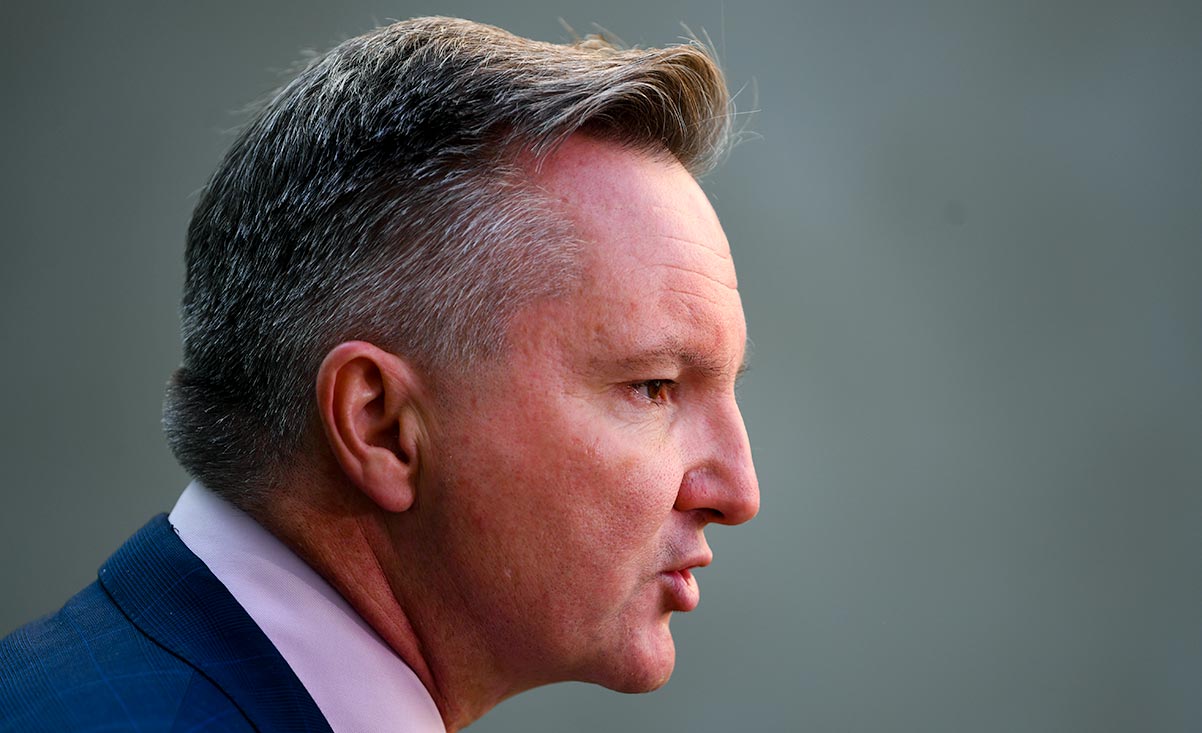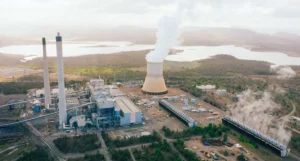Australia’s energy ministers will consider how to best accelerate investment in new energy projects in response to a growing crisis in energy markets as the Coalition doubles-down on a renewed push for nuclear power.
New federal energy minister Chris Bowen convened a meeting of federal, state and territory energy ministers on Wednesday – the first since the election of the Albanese government – amid an energy market in chaos that has sent prices soaring.
(We will report on the outcome later in the day).
Ahead of the meeting, Bowen said energy ministers would focus on what could be done to support further investment in energy projects, but cautioned that the meeting would not be able to solve all of the challenges facing energy markets.
“One meeting isn’t going to solve all the problems of nine years of lack of energy policy, but we have some meaty issues to discuss,” Bowen told ABC Radio National.
“Some issues around powers of regulators, some issues around information and some issues that I will be putting forward about better planning and better integration of the massive investment we need to avoid this problem into the future.”
Bowen said that investment in new renewable energy technologies and transmission infrastructure had been neglected under the previous Coalition government.
“We haven’t had the investment we need in renewables and transmission and storage over the last few years. We’ve had a 17 per cent reduction in renewables investment. We’re way underdone on transmission,” Bowen said.
“The [Powering Australia] policy we took to the last election is now more important than ever to get the stability and certainty around investment, to get the transition to renewables well underway and to invest massively in transmission and to increase storage.’
“The system is unstable. That’s why we are so ill prepared for this crisis that we’re facing that there just hasn’t been an effort to do anything of those things,” Bowen added.
Queensland energy minister Mick de Brenni said he hoped for a better outcome than the often combative meetings convened by the previous Coalition government.
“I am taking to this meeting a sense of optimism that the new Albanese Government’s cooperative and collaborative approach will yield better results than has been seen previously,” de Brenni said.
“Whilst all options are on the table for consideration at the [energy ministers meeting], Queensland would continue to promote policy responses that supported our record on delivering new, cheaper and cleaner generation into the market.”
Meanwhile, Nationals leader David Littleproud tweeted on Wednesday to say he had written to prime minister Anthony Albanese to consider whether Australia should establish a nuclear power industry.
I’ve written to the Prime Minister asking him to consider nuclear power as part of our energy mix.
Can we make it safe, affordable and reliable in Australia?
We need to have this conversation and if opportunities exist—back ourselves.
— David Littleproud MP (@D_LittleproudMP) June 7, 2022
Since the defeat of the Morrison government, the Coalition has ramped up its support for establishing a nuclear power industry in Australia, led by the appointment of pro-nuclear advocate Ted O’Brien as the shadow energy minister.
NSW energy minister, state Liberal MP Matt Kean, has previously described developing nuclear power in Australia as “chasing unicorns”, and reiterated that view on Wednesday ahead of the ministers’ meeting.
“People talking about nuclear as an asset to our energy challenges right now are literally chasing unicorns,” Kean said.
“It is a fantasy, which is not ready at the moment. But who knows, at some time in the future, we may crack the code of small nuclear reactors and that could play a role in our energy mix.”
Nuclear power developments are currently unlawful in Australia, prohibited under federal environmental laws, and Australia has no established nuclear energy industries.
In the latest edition of its annual GenCost assessment, the CSIRO ranked nuclear energy, including small modular reactors, as the most expensive option for new electricity generation capacity, due to the significant expenditure that would need to be made to establish a domestic industry from scratch.
Economist, and member of the Climate Council, Nicki Hutley, said the experience in the ACT and South Australia showed investments in new renewable energy projects were the key to cutting energy costs.
“What we’re seeing right now is the cost of remaining heavily reliant on fossil fuels for energy. Soaring energy bills for many households will exacerbate already significant inflationary pressures,” Hutley said.
“As one of the sunniest and windiest countries on earth, we have the tools we need. Governments can step up by attracting capital and by investing in more labour skills to support the transition.”
“The ACT and South Australia are showing the rest of the nation how investing in renewables delivers greater returns to households and businesses in the form of cheaper, cleaner energy,” Hutley added.








